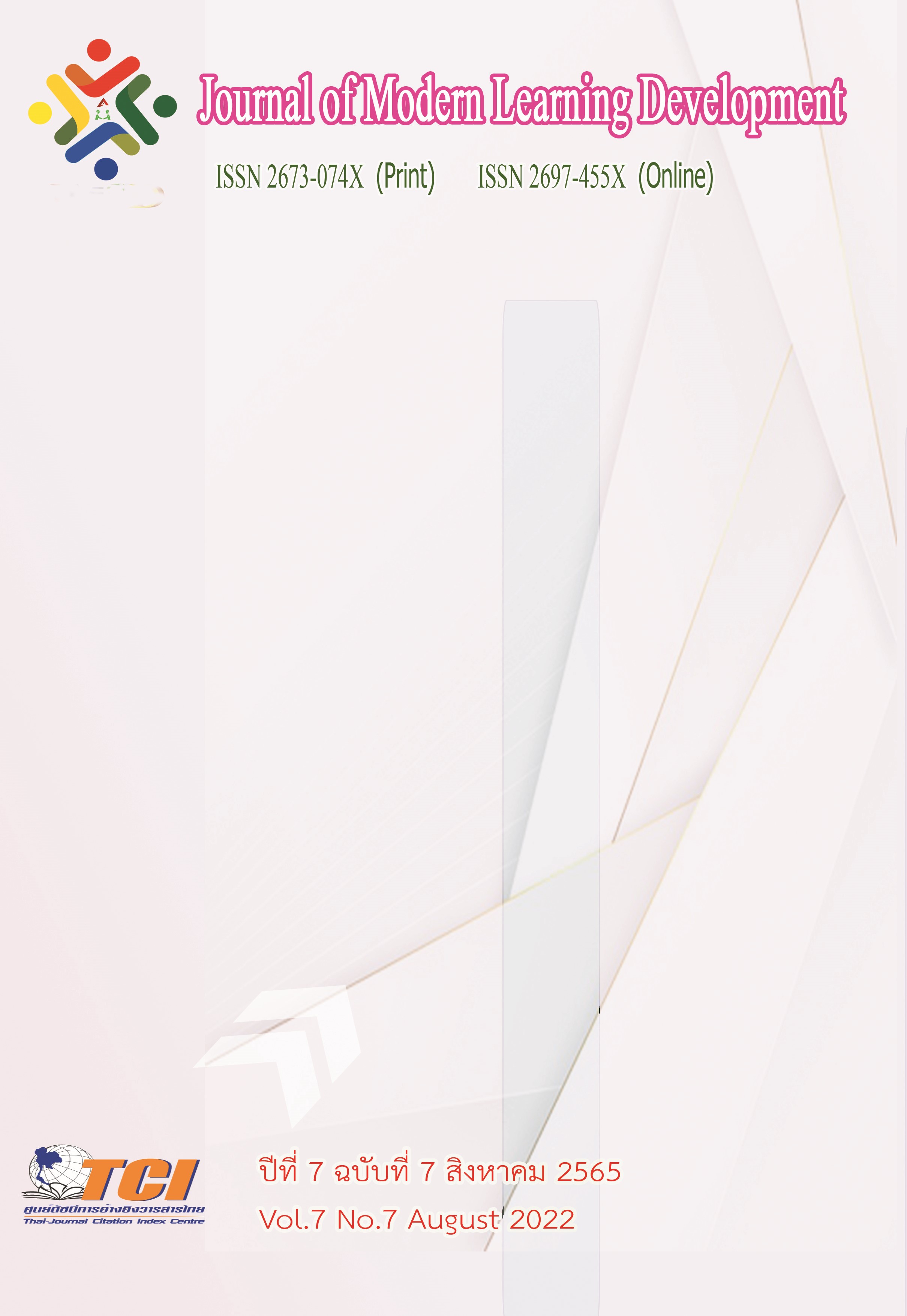The Buddhist Knowledge Management Model for Sustainable Self-Reliance in Srisuk Sub-District, Kantharawichai District, Maha Sarakham Province
Main Article Content
Abstract
The objectives of this research were: 1) to study the Buddhist knowledge management for sustainable self-reliance; 2) to study the condition of Buddhist knowledge management for sustainable self-reliance in Srisuk Sub-district, Kantharawichai District, Maha Sarakham Province; 3) to present a model of Buddhist knowledge management for sustainable self-reliance in Srisuk Sub-district. This study was carried out by means of qualitative research through studying related documents, academic textbooks, books, thesis work, various researches, and collecting data from the target group by conducting a purposive interview of 35 informants. The research results can be summarized as follows:
The Buddhist knowledge management for sustainable self-reliance refers to the process of creating knowledge by applying Buddhism principles, which emphasizes the management of self-reliant community organizations using dhamma principles to build the survival of community organizations and take advantage of the potential and resources within the community.
The condition of Buddhist knowledge management for sustainable self-reliance in Srisuk Sub-district: there was a project that covers both secular and dhamma topics in agriculture, raising income, health, and education while trying to intervene in mental development in order to create unity in work and to create awareness of the welfare of the public.
The Buddhist knowledge management model for sustainable self-reliance in Srisuk Sub-district has a goal and key that is the foundation of a strong community. It is the understanding of the essence of life in five aspects: (1) mentality: despite facing various problems and obstacles in work, one must be ready to solve the problems with consciousness. (2) Economy: people have stable occupations and have enough income to meet their expenditures from the main occupation regularly throughout the year, natural resources, environment, technology, and social aspect in line with the new agricultural theory, which is based on systematic scientific research. (3) Natural resources and environment: people in the community have adequate water sources for households and communities throughout the year. The community has a rich natural environment or other raw materials to use economically in the local area. (4) Technology: people have the tools to live and work properly for their needs and efficiency because inexpensive technology and tools have been brought to use based on the academic principles with convenience, speed, and reduction of production time. (5) Society: people and their family members have love, harmony, and solidarity. Neighbors in the community also adhere to and share rules, regulations, and traditions.
Article Details
References
ที. เมเยอร์. (2550). อนาคตของสังคมประชาธิปไตย. แปลโดยสมบัติ เบญจศิริมงคล, กรุงเทพมหานคร: สำนักพิมพ์ เอส. บี. คอนซัลติ้ง.
ประเวศ วะสี, (2550). การจัดการความรู้ : กระบวนการปลดปล่อยมนุษย์สู่ศักยภาพ เสรีภาพ และความสุข. (พิมพ์ครั้งที่ 2) กรุงเทพมหานคร : สถาบันส่งเสริมการจัดการความรู้เพื่อสังคม,
เสรี พงศ์พิศ วิชิต นันทสุวรรณ และ จำนง แรกพินิจ. (2544). วิสาหกิจชุมชน แผนแม่บท แนวคิดแนวทางตัวอย่าง ร่างพระราชบัญญัติ. กรุงเทพมหานคร: สำนักพิมพ์เจริญวิทย์การพิมพ์
เสรี พงศ์พิศ วิชิต นันทสุวรรณ และ จำนง แรกพินิจ. (2548). เครือข่าย. กรุงเทพมหานคร: สถาบันส่งเสริมวิสาหกิจชุมชน,
วิจารณ์ พานิช. (2549). การจัดการความรู้ ฉบับนักปฏิบัติ. กรุงเทพมหานคร: สำนักพิมพ์สุขภาพใจ.
สงวน สุทธิเลิศอรุณ. (2543). พฤติกรรมมนุษย์กับการพัฒนาตน. กรุงเทพมหานคร: อักษราพิพัฒน์.
ยุวนุช ทินนะลักษณ์, (2549). ปริศนาภูมิปัญญาท้องถิ่น. กรุงเทพมหานคร: สถาบันวิถีทรรศน์.
มหาจุฬาลงกรณราชวิทยาลัย. (2539). พระไตรปิฎกภาษาไทยฉบับมหาจุฬาลงกรณราชวิทยาลัย. กรุงเทพมหานคร: มหาจุฬาลงกรณราชวิทยาลัย
วิรัช วิรัชนิภาวรรณ. (2549). การพัฒนาเมืองและชนบทประยุกต์. กรุงเทพมหานคร: สำนักพิมพ์ฟอร์เพซ.
Manville, (2001). Learning in the New Economy. Leader to Leader.
M. Alavi, and D.E.Leidner. (2001), “ Review : Knowledge Management and Knowledge Management System : Conceptual Foundations and Research lssues” . MIS Quarterly, Vol.27 (January 2001)


